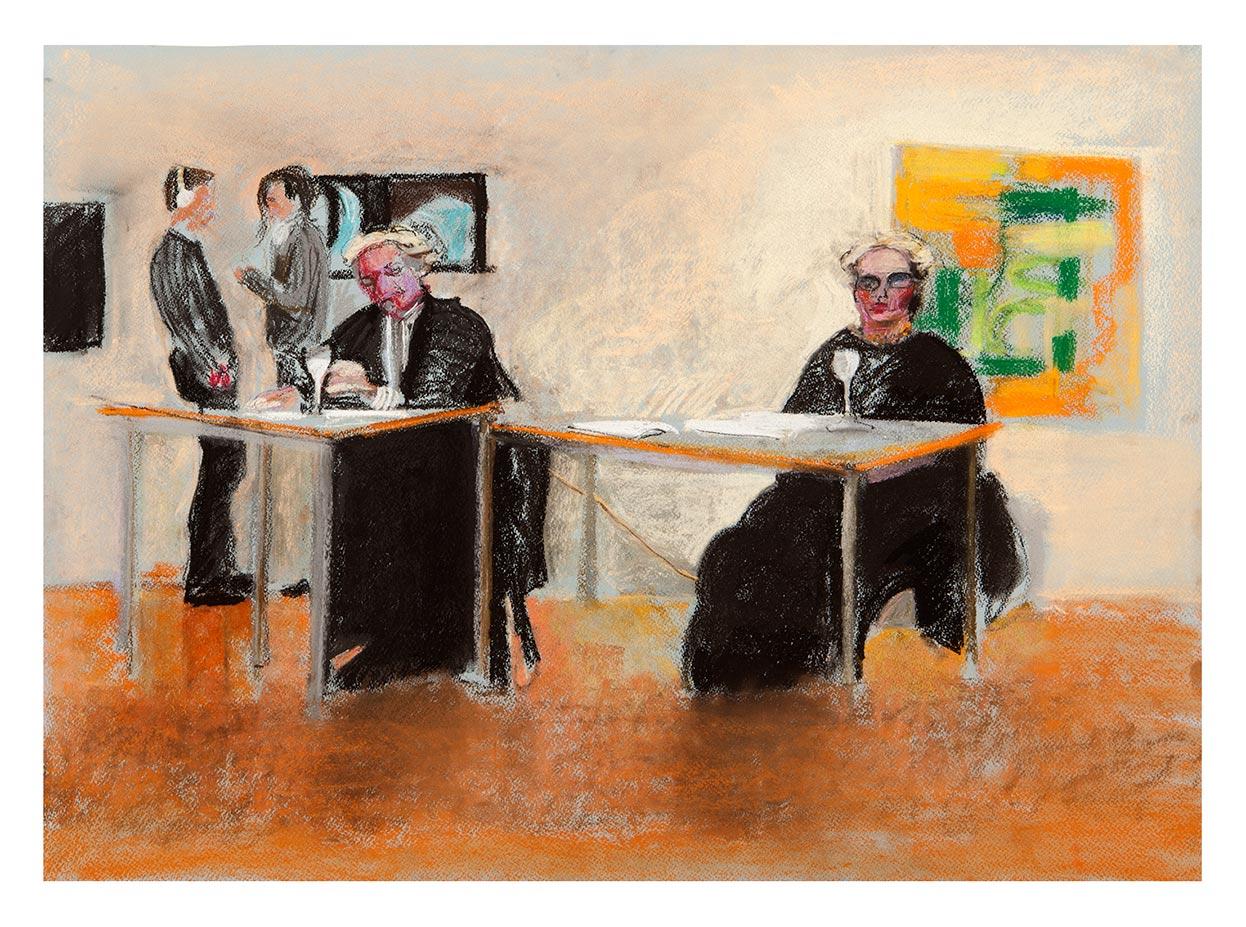Artist puts algorithm on trial for manslaughter
Primary page content
A Goldsmiths, University of London MFA student has put a computer algorithm on trial for manslaughter in a piece of performance art that questions the accountability of artificial intelligence.

Helen Knowles and Liza Brett documented The Trial of Superdebthunterbot with courtroom drawings
A group of lawyers first performed artist Helen Knowles’ work, The Trial of Superdebthunterbot, at an April 2015 group exhibition. The project has since been restaged at Southwark Crown Court and made into a 45 minute film, which was screened to guests at Knowles’ Goldsmiths MFA show in July this year.
In a fictional plot, Superdebthunterbot sees an unscupulous debt collection agency buying the debts of students across the UK, and then using unconventional means to ensure there are fewer defaulters.
Through the use of big data, individuals are targeted and constantly shown job adverts, so more money gets paid to the debt collection agency once the students sign up to a job. In a tragic twist, two young people die after taking part in a risky medical trial advertised to them through the algorithm.
Is the algorithm culpable? If Superdebthunterbot has the ability to self-educate, learn, and modify itself independently of humans, can it be found guilty of manslaughter if someone dies as a result of its actions? Can rigid legal rules apply to something that’s essentially abstract?
Recorded over half a day at Southwark Crown Court using three cameras, a camera drone, several GoPros, and an actor playing the judge, Knowles’ video was largely cast with legal experts, recruited through an email campaign to law schools.
The Superdebthunterbot algorithm was housed in a see-through computer built by artist Daniel Dressel, providing a tangible object to be tried in the courtroom. Both Knowles and fellow artist Liza Brett also produced traditional-styled courtroom drawings depicting the action.
Throughout the trial, Superdebthunterbot sat motionless in the dock, continuing to execute its code without feelings of guilt or moral conscience. It is, says Knowles, a “preposterous” situation to prosecute this non-human object, but it throws up a host of questions about ethics, computers and the law as technology continues to develop.
About the artist
Born in 1975, Helen Knowles is an artist and curator living and working in London and Manchester. Before completing her MFA at Goldsmiths in July 2016, she studied at the Glasgow School of Art. Helen is the director and curator of the Birth Rites Collection, the first and only collection of contemporary artwork dedicated to the subject of childbirth.
Her mixed media artworks are held in public and private collections including The Joan Flasch Artist Book Collection, Winchester Special Collections, The National Art Library, RCA and GSA Special Collections, The Whitworth Art Gallery, Tate Library and Archive, Museum of Motherhood, New York and Birth Rites Collection.
Visit www.helenknowles.com for more information and forthcoming screenings of The Trial of Superdebthunterbot
Trailer for The Trial of Superdebthunterbot